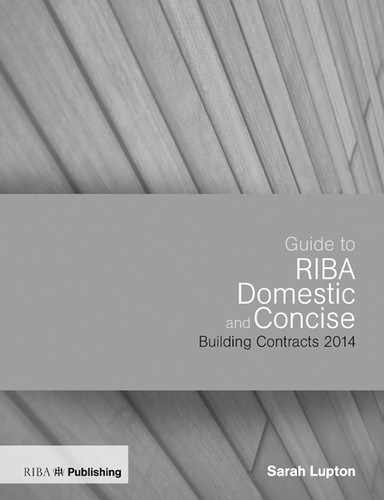Book Description
This latest title from Sarah Lupton, best-selling author of construction contract guides, provides comprehensive guidance to the RIBA’s two new building contracts: the RIBA Domestic Building Contract 2014 and the RIBA Concise Building Contract 2014.
Introducing the contracts’ features and benefits and covering all aspects of their use, from choosing and forming the right one for your project to guiding the parties through all its various stages, the Guide serves as the definitive introduction and an invaluable desktop reference for the busy contract administrator. Written in plain English to complement the RIBA Building Contracts themselves, the Guide assumes no prior knowledge of construction law or contracts; it is therefore also the ideal reference book for construction students on the threshold of undertaking their professional examinations.
Table of Contents
- Cover
- Title
- Copyright
- Foreword
- About the Author
- Contents
- About this Guide
- 1 Introduction
- 2 Forming the contract
- 3 Roles and management systems
- 4 Project progress
- 5 Control of the works
- 6 Payment and certification
- 7 Insurance
- 8 Termination
- 9 Dispute handling and resolution
- References
- Further Reading
- Clause index
- Subject index
